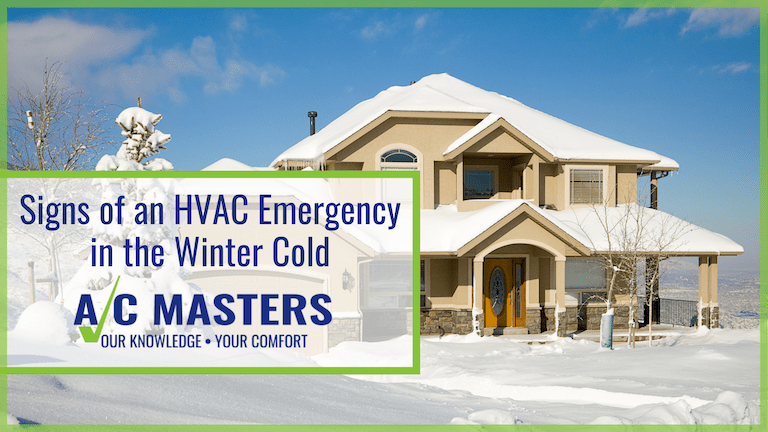Winter is officially here, and the potential for winter storms is not far behind. Cold temperatures can bring additional risk to your system and cause complications. The last thing you want is to have problems with your HVAC unit that leave your family in the cold.
There are several signs that you may have an HVAC emergency in the winter cold:
The furnace is not producing heat: If your furnace is not producing heat, it could be a sign of a malfunction or other issue. This could be caused by a variety of issues, such as a faulty thermostat, a broken igniter, or a clogged air filter.
The furnace is making strange noises: If your furnace is making strange noises, such as banging, clanging, or squealing, it could be a sign of a problem. This could be brought on by many reasons, such as a faulty blower motor, a loose belt, or a damaged heat exchanger.
The furnace is emitting strange smells: If your furnace is emitting strange smells, such as burning, musty, or chemical odors, it could be a sign of a problem. A malfunctioning gas valve, a clogged air filter, or a dirty burn chamber among other things, could give rise to these types of odors.
The furnace is cycling on and off frequently: If your furnace is cycling on and off frequently, it could be a sign of a problem. Something as simple as a faulty thermostat, a dirty air filter, or a malfunctioning limit switch could be the culprit.
If you notice any of these signs, it’s important to contact our team of HVAC professionals as soon as possible to diagnose and repair the issue. Ignoring these signs could lead to further damage to your furnace, as well as increased energy costs and a loss of heat in your home.
To prevent HVAC emergencies in the winter cold, there are several steps you can take:
Schedule regular maintenance: One of the best ways to prevent HVAC emergencies is to schedule regular maintenance for your furnace. This should include a thorough inspection and cleaning of the furnace, as well as identification of any necessary repairs or replacements.
Change the air filter regularly: A dirty air filter can cause multiple problems for your furnace, including reduced efficiency and increased wear and tear. To prevent this, make sure to change the air filter according to the manufacturer’s recommendations, or at least once every three months.
Keep the area around the furnace clear: Make sure to keep the area around your furnace clean and free of clutter. This will help ensure that the furnace has proper ventilation and air flow, which can help prevent overheating and other issues.
Install a programmable thermostat: Installing a programmable thermostat can help you better control the temperature in your home, which can help prevent your furnace from working too hard and potentially causing a problem. Read more about the types of thermostats available on the market today here.
Our team of experts is available around the clock to help prevent these issues from happening or be there for you when they do. Contact us A/C Masters today to schedule your service.

